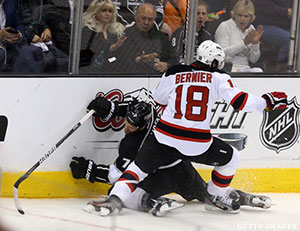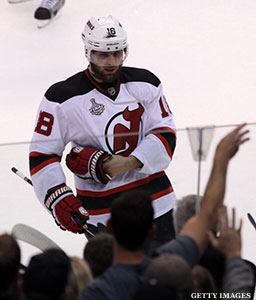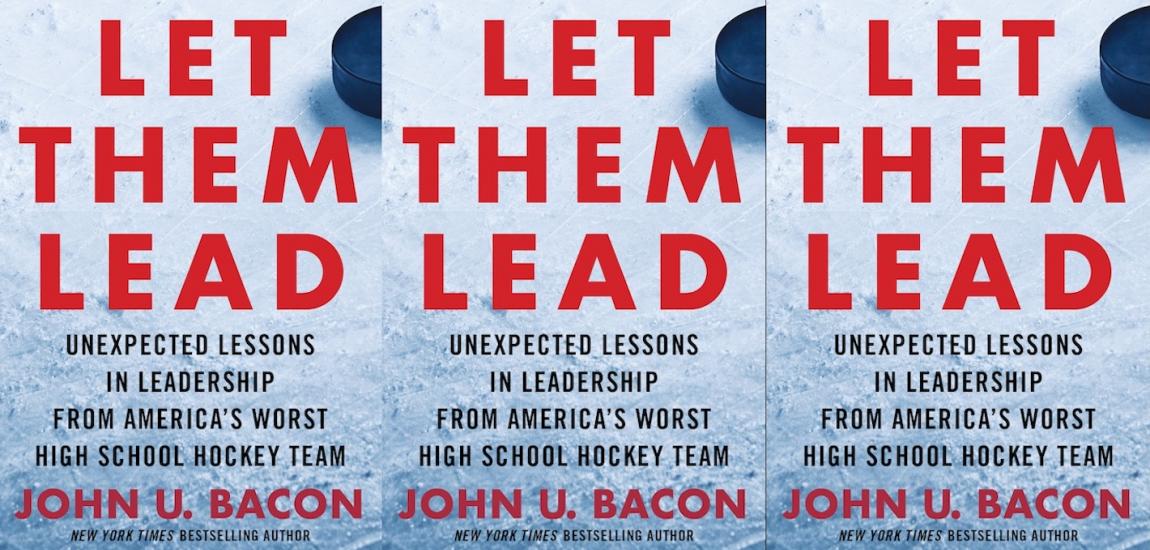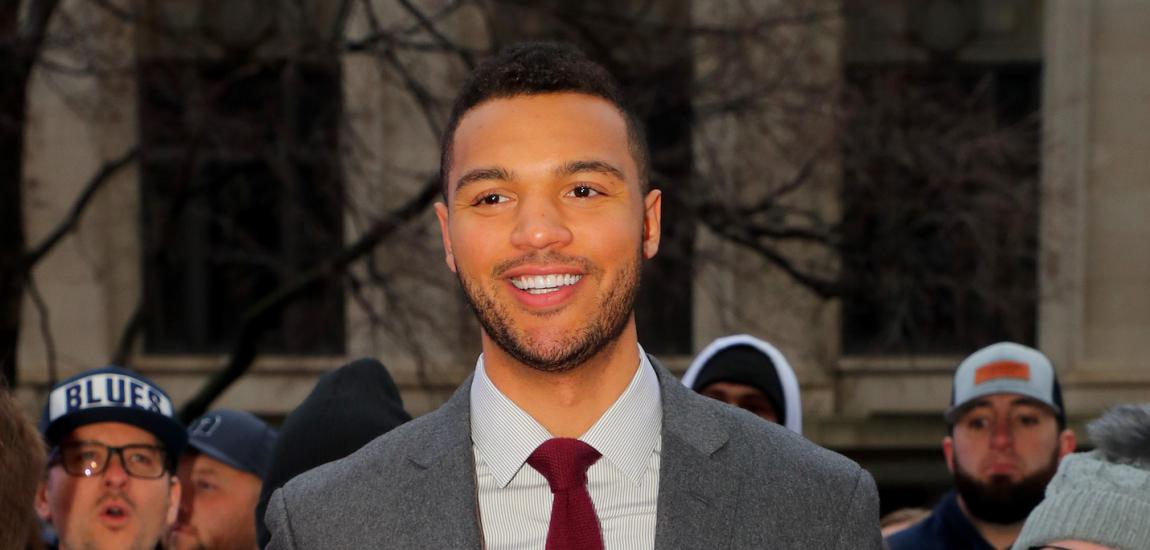
Surely you screwed something up yesterday. Didn't mean to, but it happened. Maybe your kid got detention because you were late dropping him off at school. Perhaps you said the wrong thing at a meeting and botched the sale. But afterwards how many cameras and recorders were thrust in your face with reporters looking for an explanation, an insight or a perspective?
Welcome to the unfortunate world of Steve Bernier.
Bernier received a major penalty for boarding when he drilled Kings defenseman Rob Scuderi from behind midway through the first period. He was ejected with a game misconduct. He headed to the Devils locker room with the game still scoreless.
He sat alone. No TV. No radio. No phone.
He heard the L.A. crowd roar. 1-0 Kings.
Then the crowd roared again. 2-0 Kings.
And then one more time. 3-0 Kings.
The game, and the series, was essentially over. Three power-play goals for Los Angeles on Bernier's major penalty.

By the time Game 6 of the Stanley Cup Final actually came to an end Monday night at Staples Center with a 6-1 final and a long-awaited championship for the Kings, the Bernier disses had sprouted all over social media. No need to repeat them, because that's not the point here.
Rather let's stop for a moment and consider empathy.
What if Steve Bernier was your brother? Or your son? Would you be so fast to start spreading the snark on Twitter, Facebook or wherever else it seems to be a wisecrack competition? Who can whip up the sharpest dig? Who can author the cruelest zinger? If that shows the downside of social media, Steve Bernier also showed the upside of standup guys who don't duck the press when they know the conversation will be an unpleasant topic.
Wearing a dark gray suit with a white shirt and light gray tie, Bernier never once tried to cut the interview session short and make a run for the bus.
"I thought he was going to keep the puck with his forehand," Bernier said. "He turned back. I felt very bad. But it's fast game out there. It ends up being bad play."
Bernier disagreed with the call, saying it might have been worth two minutes, but not the five that the Kings exploited.
"You want to have a strong forecheck," Bernier said. "As the first guy, you need to finish your hit, and that's exactly what I did. ... I wish I could take that play back but I can't."

When his teammates joined him in the locker for the first intermission, they gave him encouraging words.
"Everyone said to him it's not his fault and don't worry about it," Devils captain Zach Parise said. "You feel for him because you know how he's going to feel about it, but it's not his fault."
As the Devils returned to the ice for the second period, Bernier entertained hopes of his teammates staging a comeback. After all, they had cut the series lead to 3-2 after dropping the first three games. Maybe there was some magic left.
“I knew we responded good to adversity," he said. "It's been a long playoffs for us. We had a lot of good things going for us. To finish on that note, it's not fun for sure. But at the same time, there's nothing you can do now."
Bernier continued to answer questions, and when there was a brief lull, that proved to be the cue for the French-speaking media to hit him with the next wave. The Quebec City native then repeated the same explanations (presumably since our French doesn't extend much beyond coq au vin) in his native tongue.
All together, Bernier spent twice as long facing the press than the Kings did on that major penalty. Let's face it, talking about a hockey game isn't exactly grounds to earn a purple heart. But how many of us would be so patient, so accommodating on the worst night of your life?
"It's just an unfortunate situation with a player playing the game really hard, and he's going to have to live with that, and I don't think it's a fair thing," Devils goalie Martin Brodeur said. "That's what happens when one person has the fate of a hockey game in their hands."
Brodeur was referring to the referee, not Bernier.
"I told him not to worry about it," Brodeur said. "I'm sure he's blaming himself and that's just normal to do that. That was a big effect on the game, but again we had success because of the way he plays."
New Jersey's fourth line of Bernier, Stephen Gionta and Ryan Carter was arguably its best in the playoffs, particularly in the Eastern Conference finals against the Rangers. They collaborated to score the opening goal in the decisive game against the Rangers, and combined for four goals and five assists in the six-game series.

Bernier was once a highly touted prospect -- San Jose selected him in the first round in 2003 one pick before the Devils took Parise -- but his career has evolved into that of a journeyman. The Devils are his fifth NHL team in seven seasons, and there is no guarantee he will be back with New Jersey, or any NHL team, next season.
While he will be an easy punchline in the days to come, the fact is the Devils lost three other games in this series, and there's no blaming Steve Bernier for those. Yes, his penalty paved the way for the Kings to finally clinch the Cup in Game 6. But to conclude that his penalty cost the Devils the Cup is a leap. He cost them a chance to pull off a miracle comeback. There's no denying that. But that's it.
This wasn't like Marty McSorley's curved-stick penalty in the 1993 Finals. The Kings were leading the game and the series against the Canadiens when that happened. The entire complexion of the series changed. And like Bernier, Marty was a standup guy too, facing the music head on.
There's no cheering in the press box, but rooting for Steve Bernier to find some sympathy and peace of mind somehow doesn't seem like a violation of the code.
"Hopefully something positive is going to come," he said. "But at the same time, it's going to take a while before this game gets through my mind."








